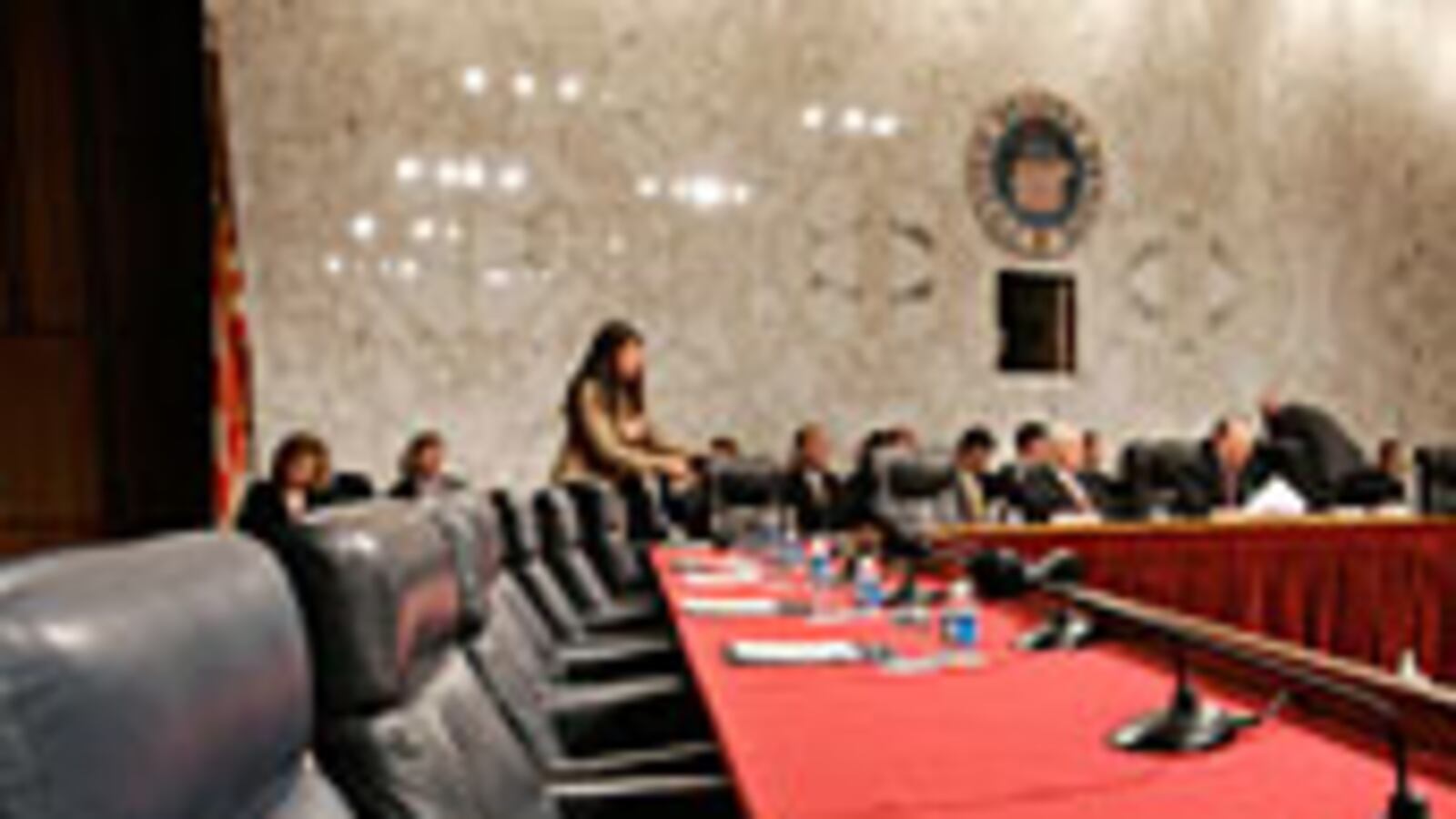
Health-care reform has many opponents: barking Blue Dogs, foot-dragging Republicans, right-wing media ideologues. But its biggest enemy may be the calendar as the congressional recess kicks off this week. In the Senate, they call it the “State Work Period.” In the House, it’s the “Summer District Work Period.” No matter what you call it, it means no legislation until congressmen are back in Washington the first week of September. What gives?
With 55 scheduled “state work” days, what you and I might call “time off,” Congress is out-Frenching the French, who lead Europe with 38 days of paid vacation.
Perhaps Founding Fathers Alexander Hamilton, James Madison, and Thomas Jefferson should bear the brunt of the blame for Congress’ lavish vacation. It was their compromise in 1790 that placed the young nation’s capital on top of a real-live swamp, where life is nearly unlivable during the summer. David King, a lecturer on Congress at Harvard's Kennedy School of Government, told The Daily Beast that the capital was so dreadful in its early years that “ambassadors from other countries had to get extra pay just to be in Washington.”
The summer heat literally forced congressmen to flee. Asked for the original reason for the August recess, Assistant Senate Historian Betty Koed said, “It all goes back to the days really before we had air conditioning.” Through the 1940s, Koed said, “most of the spaces here were not air-conditioned, the chambers were unbearably hot during the summer.”
But air conditioning has been a regular feature of Washington buildings for at least two generations, so that’s hardly an excuse. One commonly cited reason for the monthlong vacation is that members need time to go home and work their districts. But with modern travel, representatives and senators usually spend three to four days a week at home when they’re in session—it’s part of their permanent campaign. Except for Sen. Daniel Inouye and his colleagues from Hawaii, everyone can make it home and back over the course of a long weekend.
“This isn’t about working in the districts,” said King, who runs a boot camp for first-year congressmen every election year. Instead, it’s leading the life of a congressman: attending weddings and taking part in congressional delegations, the taxpayer-sponsored trips abroad, which have increased 50 percent since the Democrats took over Congress in 2006.
Even the vacation-happy George W. Bush took offense at the length and timing of congressional leave-taking. Bush, who visited his Crawford, Texas, ranch 77 times during his eight years in office, lashed out at legislators in April 2007. “The Democrats in Congress… have left Washington for spring recess without finishing the work," said Bush. "They need to come off their vacation, get a bill to my desk...”
Congress’s endless summer—the Senate returns to work on September 7, the House on September 4—stands in stark contrast to the vacation time for most Americans. According to Expedia.com, which obviously has an interest in getting us all to take the month off, Americans receive 13 vacation days on average this year. With 55 scheduled “state work” days, what you and I might call “time off,” Congress is out-Frenching the French, who lead Europe with 38 days of paid vacation. Congress makes its own schedule, and could cool off in its air-conditioned offices for the entire month of August if members deemed it necessary. In 1971, Congress passed a law protecting their August disappearance.
While it burns to think that you’re sitting in a cubicle while the senator you voted for is off snorkeling the Great Barrier Reef (an actual taxpayer-sponsored destination), the recess might actually be helpful. The month off should at least give congressmen time to read the bill they might vote into law. And as Jonathan Cohn wrote last week in The New Republic, “It's easy to forget, but congressional staff and the members themselves are human beings, prone to same behavior as anybody else when under stress. Everybody is tired and on edge. Tempers are flaring. This is not an environment conducive to progress of any sort.” (On the debit side, while Congress is away, 14,000 people will lose health-care coverage every day.)
King said that the August recess deadline has a focusing effect. Speaking Friday morning, the Harvard scholar likened Congress’s last-minute dealings to the final-hour negotiations before Major League Baseball’s 4 p.m. trade deadline, saying most things don’t get done until 3 p.m. anyway.
“The August recess tends to be an action-forcing event,” King said.
Still, time might not have much to do with it.
“It also true that there aren't the votes to try get this passed in Congress by the recess,” King said. “The leadership needs to sit back and figure out a compromise. Simply having August to work doesn’t mean they would get it done any earlier.”
Samuel P. Jacobs is a staff reporter at The Daily Beast. He has also written for The Boston Globe, The New York Observer, and The New Republic Online.






